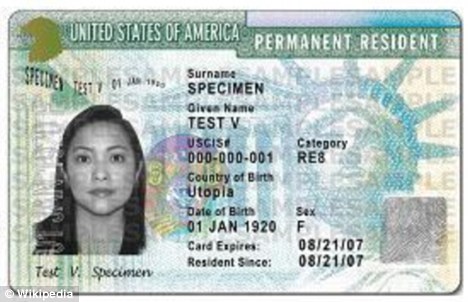Por John Vandenberg
Com o estado da Pensilvânia voltando ao trabalho depois da quarentena causada pelo COVID-19 e algumas regiões do estado movendo para a fase verde da reabertura enquanto outras movem para a parte amarela, é importante lembrar que a comunidade de imigrantes é um propulsor econômico na Pensilvânia. Eles já trabalham em indústrias essenciais durante a luta contra o COVID-19, e vão também ser cruciais para a recuperação.
A comunidade varia de donos de pequenas empresas na Main Street passando para funcionários do ramo da tecnologia em centros de pesquisas, e trabalhadores indocumentados na área de construção e jardinagem. Imigrantes compõem aproximadamente 7% da população do estado, e ainda assim correspondem a 10% dos empresários no estado, empregando mais de 189 mil pessoas em todo o estado. De acordo com um relatório da New American Economy, em 2016 empresários não-nascidos nos EUA geraram $120mi de dólares apenas no condado de Allegheny. Pennsylvania SBDC reportou que imigrantes donos de pequenas empresas geraram mais de $2bi no total de renda liquida em 2010. Em 2018, Firmas operadas por imigrantes registraram um total de vendas de $31.1bi, e comandaram o poder de compra de $24.6bi enquanto pagaram $10.2bi em impostos.
O impacto positivo dos imigrantes durante a crise do COVId-19 é tão evidente quanto os dados pre-pandemia. Um total de 16.5% dos trabalhadores da área da saúde nos Estados Unidos são nascidos fora do país; mais de um quarto de todos os médicos não são nascidos nos Estados Unidos. Fora da área da saúde, imigrantes atuam desproporcionalmente em serviços de risco – quase 35% dos trabalhadores da indústria de processamento de carnes são imigrantes (resultando em um número significante em números de casos de COVID-19), e imigrantes essenciais para a cadeia alimentar correspondem a quase um quarto do total de funcionários.
Em suma – a comunidade de imigrantes é crucial na luta da Pensilvânia para voltar ao trabalho e diminuir a duração e intensidade do COVID-19, sem mencionar os resultados de antes da pandemia. Pensilvânia e outros estados têm uma responsabilidade significativa em criar suporte para comunidades de imigrantes e facilitar a atuação deles para colocá-los de volta ao trabalho de maneira segura e eficiente:
- Garantindo que cidades e condados postem informações sobre testes e tratamentos da pandemia em outros idiomas, enfatizando que testes NÃO necessitam de comprovação de status e o tratamento não afeta a elegibilidade para residência permanente. Testar a população é crucial para identificar, isolar e diminuir a infestação do COVID-19. Publicar e garantir acessibilidade de idiomas para testes e tratamentos disponíveis é crucial. Exemplos de sucesso incluem Pennsylvania Health Access Network, Community Legal Services em Philadelphia, e o projeto Project Baseline, patrocinado pela Rite Aid. Recursos adicionais devem ser expandidos, especialmente em espanhol e outras línguas, de acordo com a necessidades de cada região.
- Assegurar que imigrantes conheçam programas que vão ajudá-los a voltar a ter estabilidade financeira. Imigrantes sem seguro social (SSN) ou famílias onde mais de um individuo tem uma identificação de imposto individual (ITIN) foram excluídos do cheque de estímulo do COVID-19, apesar de imigrantes indocumentados pagarem mais de $11.7bi em impostos federais e estaduais, mais de $139mi apenas na Pensilvânia. O programa de assistência emergencial do estado para ajudar famílias de baixa renda só proveu suporte até o dia 12 de junho, contanto que tivesse fundos disponíveis.
- Assegurar que empresas de imigrantes conheçam e tenham acesso a recursos, inclusive financeiros, circulando nas comunidades em que eles servem, formando parcerias ativas na comunidade. Geralmente imigrantes começam seus negócios com a sua poupança pessoal. Um estudo feito no condado de Allegheny notou que 52.5% dos imigrantes usaram suas finanças pessoais para começar o próprio negócio. No mesmo estudo, apenas 2.5% utilizaram o empréstimo de pequenas empresas para abrir o próprio negócio. Barreiras de linguagem podem exacerbar os desafios corriqueiros para iniciar o próprio negócio, já que obter licenças e outras permissões requer igualmente documentação e contato com oficiais municipais que podem ou não ter as habilidades linguísticas necessárias para finalizar o processo com sucesso. O condado de Allegheny tem o próprio centro de recursos para imigrantes e empresários internacionais. O escritório para assuntos de imigrantes na cidade de Philadelphia tem feito parcerias de sucesso com ONGs para assistir empresários a navegar pelo processo de iniciar um negócio e facilitar a entrada de imigrantes altamente qualificados no mercado de trabalho.
- Assegurar que comunidades de imigrantes estejam cientes de realidades como wage-theft (quando obrigações contratuais não são respeitadas pelo empregador) e tem os recursos para recuperar ganhos perdidos. Na época do furacão Harvey em Houston, TX, mais de um quarto dos trabalhadores imigrantes foram vítimas de wage-theft. Enquanto Pensilvânia se recupera do COVID-19, e demonstrações mais recentes mostram empresas tentando se recuperar em um só impulso, a reconstrução vai ser feita por imigrantes, tanto documentados quanto indocumentados. Proteger seus direitos, assegurando tratamento justo, e assistindo aqueles que foram prejudicados vai ser importante para a recuperação total. O estado pode ter um papel importante em educar trabalhadores, em idiomas que eles entendem, que wage-theft e discriminação são contra a lei.
Enquanto Pensilvânia segue em frente, o estado de utilizar de cada recurso à sua disposição. Todos os modelos financeiros mostram que os Estados Unidos estão em recessão devido às iniciativas necessárias para o combate à pandemia do COVID-19. A curva para a recuperação vai ser determinada em grande parte pelos esforços do estado em capitalizar cada vantagem que tem para limitar a duração da recessão, e gerenciar seus efeitos na população. A comunidade de imigrantes na Pensilvânia pode e vai ajudar nesse esforço, e o estado da Pensilvânia pode usar os quatro pontos acima para assegurar que todos os habitantes do Commonwealth façam sua parte com o melhor resultado possível.
If you need legal advice, or would like to review your immigration options, please contact our office at (610) 664-6271 or visit our website to schedule a consultation.
The information provided on this website does not, and is not intended to, constitute legal advice; instead, all information, content, and materials available on this site are for general informational purposes only. Information on this website may not constitute the most up-to-date legal or other information. Readers of this blog should contact our office or their own attorney to obtain advice with respect to any particular legal matter. No reader, user, or browser of this site should act or refrain from acting on the basis of information on this site without first seeking legal advice from counsel in the relevant jurisdiction. Only your individual attorney can provide assurances that the information contained herein – and your interpretation of it – is applicable or appropriate to your particular situation. Use of, and access to, this website or any of the links or resources contained within the site do not create an attorney-client relationship between the reader, user, or browser and the law firm of Hogan & Vandenberg or its employees.


 First, an experienced and trustworthy immigration lawyer might be able to figure out a way to get you something better than DACA. Maybe you or a DACA you know has been a victim of crime, or trafficking. Or maybe they qualify for Amnesty through a parent or family member. If you just filled out DACA forms, you don’t know. Because DACA appears to be coming to an end, now is the time. To get an idea,
First, an experienced and trustworthy immigration lawyer might be able to figure out a way to get you something better than DACA. Maybe you or a DACA you know has been a victim of crime, or trafficking. Or maybe they qualify for Amnesty through a parent or family member. If you just filled out DACA forms, you don’t know. Because DACA appears to be coming to an end, now is the time. To get an idea,  ol (don’t do it), that they realize they have options out there (everyone does, some more, some less), and reminding them that if Immigration Law has one maxim, it’s this: be here. As long as you are in the United States, you have options. And everyone DACA has been here for at least 10 years, so they know what it takes to make sure they are here when we get a
ol (don’t do it), that they realize they have options out there (everyone does, some more, some less), and reminding them that if Immigration Law has one maxim, it’s this: be here. As long as you are in the United States, you have options. And everyone DACA has been here for at least 10 years, so they know what it takes to make sure they are here when we get a  in the United States – I’m thinking immigrants with work visas, or greencards, or you are petitioning for a relative who is overseas – you should be OK.
in the United States – I’m thinking immigrants with work visas, or greencards, or you are petitioning for a relative who is overseas – you should be OK.

